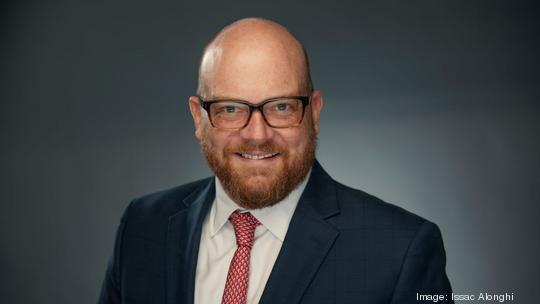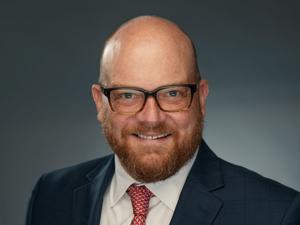
A local startup has acquired the assets of a now defunct San Diego startup, which had the right technology at the wrong time.
Telememory Holding Corp., based in Kansas City, Kansas, signed a deal for Dthera Sciences, a digital therapeutic company that developed quality of life therapies for elderly patients and those with neurodegenerative diseases such as Alzheimer’s and dementia. For its Alzheimer’s symptoms treatment, Dthera received an FDA Breakthrough Device designation in 2018.
“To our knowledge, we’re the only non-pharmacological, non-pharmaceutical product to ever be given this designation for the Alzheimer’s indication,” Dthera CEO Edward Cox told MobiHealthNews at the time.
The acquisition includes Dthera’s FDA designation, intellectual property portfolio, patents and clinical pilot research.
Opening new doors
Both Dthera and Telememory were attacking the same problem through a non-drug-based form of mood management for central nervous system disorders, Telememory CEO and co-founder Eliot Arnold said.
“Dthera has a hardware device developed on the same platform we are developing on. This provides us with unique hardware IP without having to develop it ourselves,” he said. “We feel this opens new doors with industry partners and reinforces the fact we have a validated solution going to market.”
Combining Telememory’s technology with Dthera’s can help the local startup become a market leader, he said.
Last year, Telememory landed a pilot project with Delmar Garden Enterprises to test its MoodSpark digital companion at an assisted-living facility in Lenexa. It now plans to target U.S. veteran seniors.
MoodSpark combines a smart display with a digital assistant to address chronic loneliness and dementia. It relies on several technologies to detect patterns of stress and sadness, including computer vision, audio sentiment analysis and algorithms for detecting facial expressions. The digital companion can respond to one’s mood and improve it by using personalized conversational queues, video visits from family and friends, and content suggestions designed to spark emotional memory recall. MoodSpark also shares engagement data, activity and response information with families and caregivers.
Dthera developed a similar product that delivers digital reminiscence therapy. Its custom-built tablet uses artificial intelligence and biofeedback from the front-facing camera to determine what content to display, from family photos to music, to guide a patient’s mood.
Right technology at the wrong time
Dthera, which ceased operations in 2019, targeted two main routes to commercialization: partnering with a pharmaceutical company to be its companion offering to a novel Alzheimer’s drug and pursuing direct reimbursement from the Centers for Medicare and Medicaid (CMS) when used at facilities such as senior living.
The promising drugs failed during clinical trials, negating potential partnerships, and CMS offered limited reimbursement at the time. Since then, the Medicare Coverage of Innovative Technology passed, becoming a “game changer” for reimbursement of Breakthrough Designation devices, Cox told MobiHealthNews in early 2021. But the law’s passage came too late for Dthera, which “ran out of capital before that commercial pathway was available,” Cox said.
Arnold, who saw the MobiHealthNews article, contacted Cox to discuss the business, the timing and what could be done differently.
“Ed had some interesting ideas, and I identified a couple of channels that Dthera was not able to exploit,” Arnold said.
MoodSpark negotiated a deal with Dthera investor Ionic Ventures and used cash and stock to fund it. Financial details were not disclosed.
"(Ionic) wanted to see the product in the hands of patients as well – very much so. I know that they would still like the product someday in the hands of someone who could do something amazing with it," Cox told MobiHealthNews last year.
Now that “someone” is Telememory.






